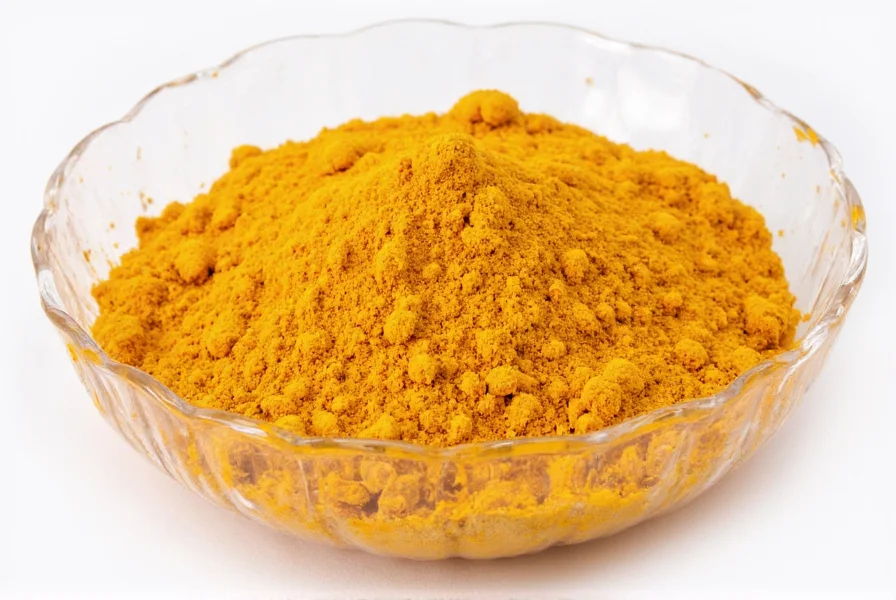When exploring natural approaches to weight management, many people wonder: will turmeric help you lose weight? The straightforward answer is no—turmeric isn't a magic solution for shedding pounds. However, emerging research suggests that curcumin, turmeric's primary bioactive compound, might offer supportive benefits when incorporated into a comprehensive weight management strategy.
The Science Behind Turmeric and Weight Management
Turmeric (Curcuma longa) has been used for centuries in traditional medicine, particularly in Ayurvedic and Chinese practices. Modern science has begun investigating its potential metabolic benefits. Multiple studies have examined how curcumin might influence weight regulation through several biological pathways.
Research published in Nutrition Journal found that curcumin supplementation significantly reduced body fat percentage and腰围 measurements in overweight individuals when combined with dietary changes. Another study in Evidence-Based Complementary and Alternative Medicine reported that curcumin helped prevent weight gain in participants following a high-fat diet.
How Curcumin May Support Weight Management
Scientists have identified several potential mechanisms through which curcumin might assist with weight management:
| Mechanism | How It Works | Research Status |
|---|---|---|
| Anti-inflammatory effects | Reduces chronic inflammation associated with obesity | Strong evidence in animal studies, moderate in humans |
| Adipogenesis regulation | May inhibit formation of new fat cells | Promising in vitro studies |
| Metabolic improvement | Enhances insulin sensitivity and lipid metabolism | Good evidence from clinical trials |
| Appetite regulation | Potential influence on hunger hormones | Limited human evidence |
Realistic Expectations for Turmeric Weight Loss Benefits
It's crucial to understand that turmeric supplements for weight loss won't produce dramatic results on their own. The most effective natural weight loss with turmeric comes when it's part of a comprehensive approach that includes:
- Balanced calorie-controlled diet
- Regular physical activity
- Adequate sleep and stress management
- Consistent healthy habits over time
A systematic review of nine clinical trials involving 700 participants concluded that curcumin supplementation resulted in modest but statistically significant reductions in body weight, BMI, and waist circumference compared to placebo groups. However, the average weight loss was approximately 1-2 pounds more than control groups over study periods ranging from 4-12 weeks.
Practical Considerations for Using Turmeric
If you're considering adding turmeric to your weight management routine, here are evidence-based recommendations:
Dosage: Most studies showing potential benefits used 500-2,000 mg of curcumin daily. Standard turmeric powder contains only about 3% curcumin by weight, so supplements with enhanced bioavailability are typically used in research.
Bioavailability: Curcumin has poor absorption on its own. Look for formulations containing piperine (from black pepper) or phospholipids, which can increase absorption by up to 2,000%. Consuming turmeric with healthy fats also improves absorption.

Limitations of Current Research
While the research on turmeric and weight loss shows promise, several limitations exist:
- Most human studies have small sample sizes
- Many trials last only 8-12 weeks, insufficient for long-term weight management assessment
- Studies often combine curcumin with other interventions, making isolated effects difficult to determine
- Research on optimal dosage and formulation is still evolving
A 2022 review in Frontiers in Nutrition concluded that while curcumin shows potential as an adjunct therapy for obesity management, "larger, longer-term clinical trials are needed to establish definitive recommendations for its use in weight management protocols."
Safety and Potential Side Effects
Turmeric is generally safe when consumed in food amounts. However, high-dose supplements may cause:
- Digestive issues like nausea or diarrhea
- Increased risk of bleeding for those on blood thinners
- Potential interactions with diabetes medications
- Gallbladder complications for those with gallstones
Consult with a healthcare provider before starting turmeric supplements, especially if you have medical conditions or take medications. This is particularly important when considering turmeric supplements for weight loss alongside other interventions.

Turmeric as Part of a Comprehensive Weight Management Strategy
The most effective approach to sustainable weight loss involves multiple evidence-based strategies working together. Turmeric might play a supporting role, but shouldn't replace foundational practices:
- Nutrition: Focus on whole foods, portion control, and balanced macronutrients
- Physical activity: Aim for 150+ minutes of moderate exercise weekly
- Behavioral changes: Address emotional eating and develop healthy habits
- Sleep quality: Prioritize 7-9 hours of quality sleep nightly
- Stress management: Chronic stress contributes to weight gain
When researching natural weight loss solutions with turmeric, remember that no supplement replaces the fundamentals of healthy eating and regular exercise. The potential benefits of turmeric for weight management appear to be modest and supplementary rather than transformative.
Conclusion
Will turmeric help you lose weight? Current scientific evidence suggests that curcumin may provide modest supportive benefits for weight management when combined with diet and exercise, but it's not a standalone solution. The most effective weight loss with turmeric comes from viewing it as one component of a comprehensive approach that prioritizes nutrition, physical activity, and healthy lifestyle habits.
If you're exploring turmeric for weight loss support, consult with a healthcare professional to determine if it's appropriate for your individual circumstances and to establish realistic expectations about potential results. Remember that sustainable weight management focuses on long-term lifestyle changes rather than quick fixes.
Does turmeric burn belly fat specifically?
Turmeric doesn't specifically target belly fat. While some studies show curcumin may help reduce overall body fat percentage and waist circumference, spot reduction of fat isn't possible. Any fat loss occurs throughout the body as part of overall weight reduction when combined with proper diet and exercise.
How much turmeric should I take daily for weight loss?
Research studies showing potential weight management benefits typically used 500-2,000 mg of curcumin daily. Since regular turmeric contains only about 3% curcumin, supplements with enhanced bioavailability are usually required to reach these doses. Always consult with a healthcare provider before starting supplementation.
How long does it take to see results from turmeric for weight loss?
Most clinical studies showing modest weight management benefits lasted 8-12 weeks. Individual results vary significantly based on overall diet, exercise routine, and other lifestyle factors. Turmeric alone won't produce noticeable weight loss results without comprehensive lifestyle changes.
Can I drink turmeric water for weight loss?
Turmeric water may provide some benefits as part of a healthy routine, but the curcumin content in water alone is minimal. For potential weight management effects, you'd need significantly higher curcumin concentrations than what's achievable through turmeric water. Adding black pepper and healthy fats can improve absorption, but supplements are typically required for therapeutic doses.
Does turmeric interact with weight loss medications?
Turmeric may interact with certain medications, including some weight loss drugs. Curcumin can affect how the liver processes medications, potentially altering their effectiveness. If you're taking prescription weight loss medications like orlistat, liraglutide, or semaglutide, consult your healthcare provider before adding turmeric supplements to your regimen.











 浙公网安备
33010002000092号
浙公网安备
33010002000092号 浙B2-20120091-4
浙B2-20120091-4